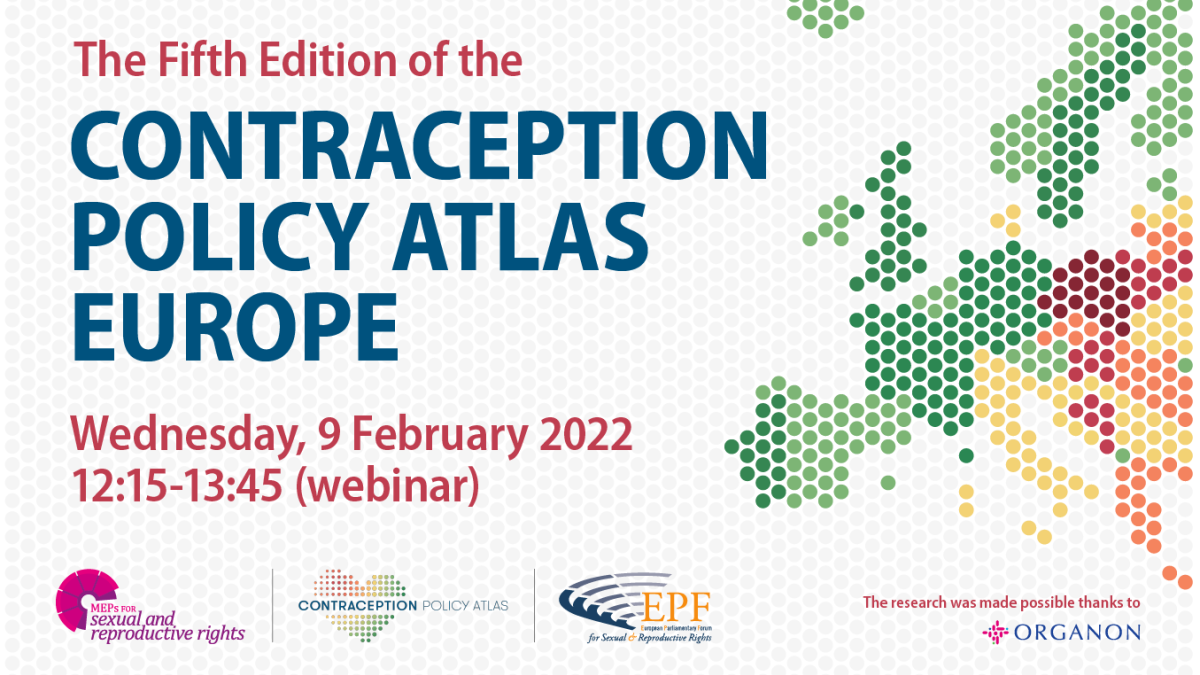
Today saw the launch of the 5th edition of the EPF‘s (European Parliamentary Forum for Sexual and Reproductive Rights) Contraception Atlas.
The Atlas, which was first launched in 2017, ranks 46 countries across Europe on a range of measures related to contraception ranging from access to information to reimbursement for adults, young people and vulnerable groups to access to contraceptive devices.
The webinar launch of the atlas, presented today by Croatian S&D MEP Fred Matic and Dutch Liberal MEP Sophie in ‘t Veld and had over 220 registered attendees.
Hon. Mr Matic remarked that “Having access to affordable and accessible contraception is a basic right for all in a modern democracy. The atlas offers us a clear picture of where various European countries stand on this issue.”
Hon. Ms in ‘t Veld added that “access to contraception is still uneven across Europe. Behind the very informative colour-coded map of this year’s Contraception Atlas are individual stories of Europeans, often not able to safeguard their independence and health. Although we see some progress, there still is so much push back against sexual and reproductive rights. We will fight until everyone in Europe has the freedom to choose.”
French Liberal MEP Irene Tolleret also addressed the launch and recalled that "modern contraception plays a key role in achieving gender equality. It is crucial to ensure universal access to high-quality contraceptive methods and address financial, social and cultural barriers impeding it. The fundamental right to health and the right to choice for all women need to be safeguarded."
This year’s Contraception Atlas has a slightly broader scope than previous editions, in that it gives consideration to the type of contraceptives covered within the national health systems, particularly long-acting contraceptives, especially in the case of young people.
One of the more noticeable trends with this edition is that there is still clearly a strong east/west divide on this issue with several eastern countries remaining at the bottom of the chart and western countries like Belgium, France and the United Kingdom remaining at the top.